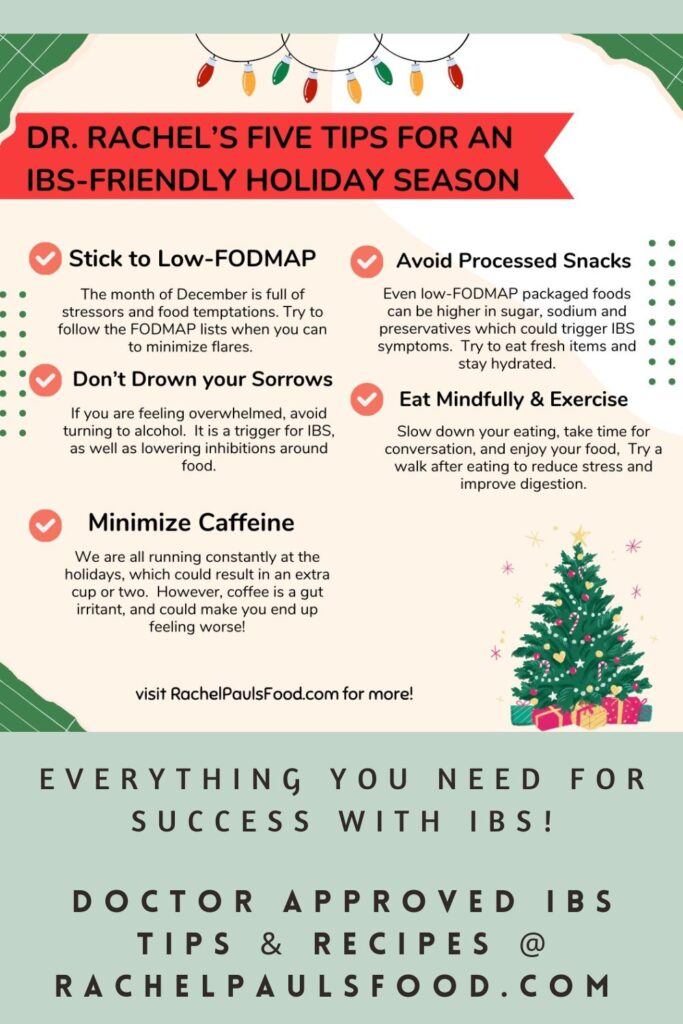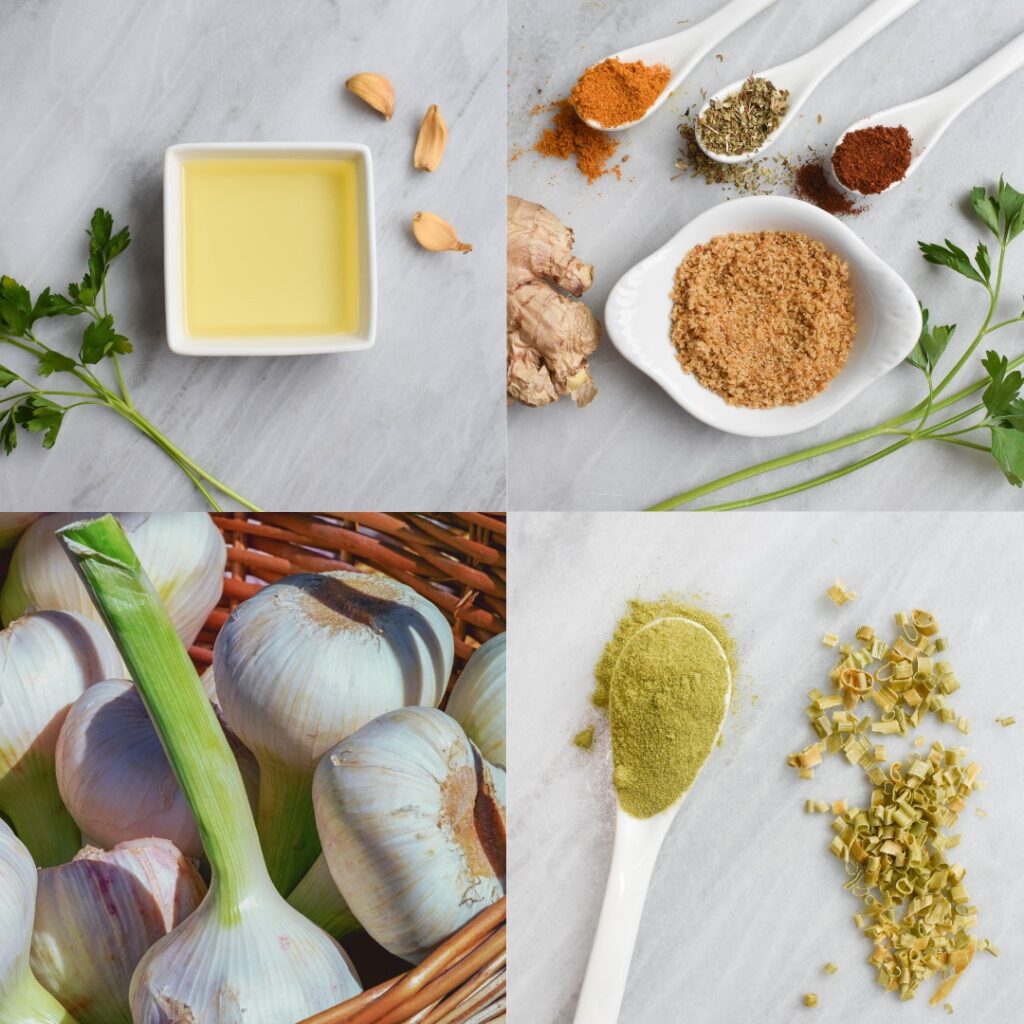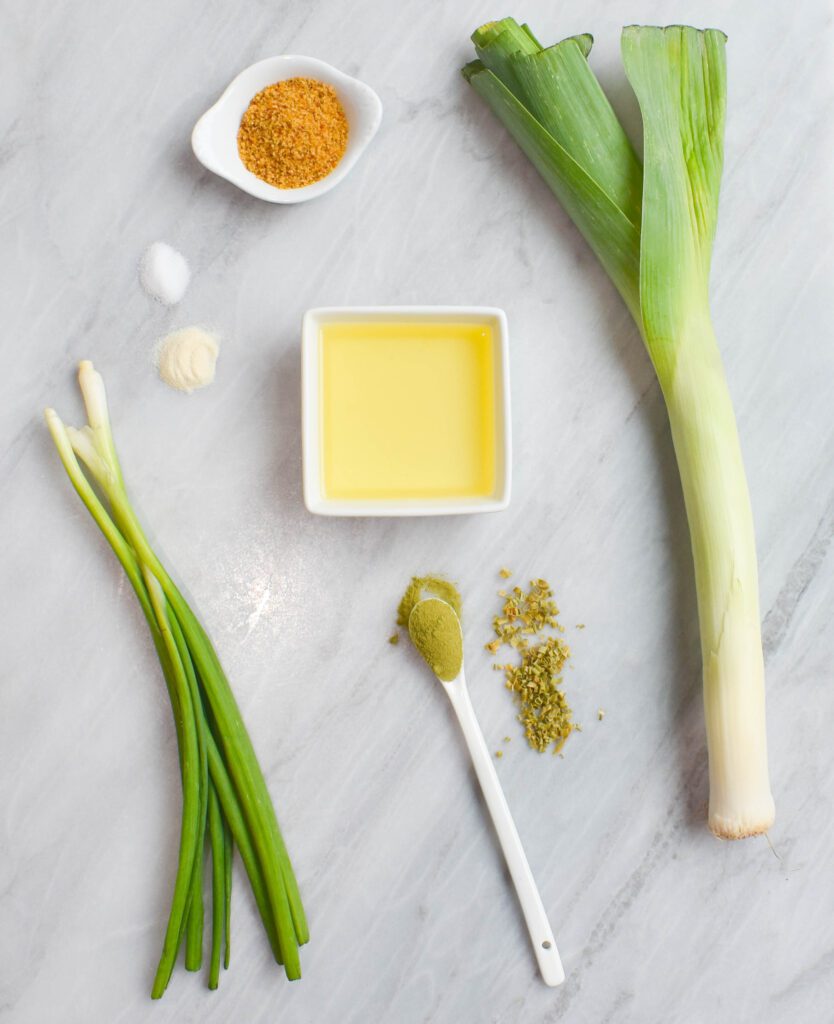I know from personal experience, that while stress doesn’t cause Irritable Bowel Syndrome (IBS), it can lead to flares-ups of your symptoms. Why? We don’t know for sure, but it may be due to stimulation of nerves in the gut wall or a negative impact on your immune system.
Welcome to the holidays, where 90% of Americans report feeling stressed for at least one part of the season!
I can’t eliminate the long checkout lines (or talk your in-laws into staying at a hotel), but I can share a few of my eating tips to help keep your holidays merry and bright:

1. Stick to the low-FODMAP diet:
- I can’t emphasize this enough. Research shows that 70-80% of people with IBS will have improved symptoms by following a low-FODMAP diet.
- For more information, talk to your doctor or dietitian and download our free FODMAP Happy Gut Guide for great tips as well as High and Low-FODMAP Food Lists and Label Reading.
- Also make sure to check out over 600 low-FODMAP recipes on my blog, including my Low-FODMAP Christmas and Holiday Menu collection, my low-FODMAP Tips for a Trip (packing list), and remember to tuck a few delicious low-FODMAP Energy Bites or Oatmeal Bars into your purse or travel bag!
2. Be careful with the coffee:
- While many of us enjoy our daily cup, there may be a tendency to amp up the intake when under pressure. Unfortunately, coffee can contain FODMAPS, especially blends with chicory or added milk. Plus, coffee’s acidity and stimulatory effect can irritate the gut and other body systems.
3. Minimize processed foods and sugary/salty snacks:
- Processed foods contain additives and, often, excess sugars, which can upset your stomach. While these may taste good initially, they lead to an unpleasant crash later. Salty choices can lead to fluid retention and elevate blood pressure.
4. Don’t drown your sorrows:
- Alcohol is not only an IBS trigger, but also a depressant. Don’t rely on it to boost your mood or help with stress. And if you do choose to imbibe, please read my blog on Low-FODMAP Happy Hour Cocktail Options.
5. Practice mindful eating and get exercise!
- Fatigue and feeling overwhelmed are often triggers for eating the wrong foods, distracted eating or overeating. Mindful eating helps reduce that by focusing on savoring every mouthful. Being in the moment not only reduces overeating, it creates more pleasure from the experience. This can reduce stress and cultivate joy.
- Exercise will help reduce stress, improve your digestion and just make you feel great! Go for a walk, take the stairs, practice yoga, try something new!
Remember, this is the most wonderful time of the year!
Enjoy the opportunity to celebrate with loved ones, and above all…
Be healthy and happy,
Rachel Pauls, MD










